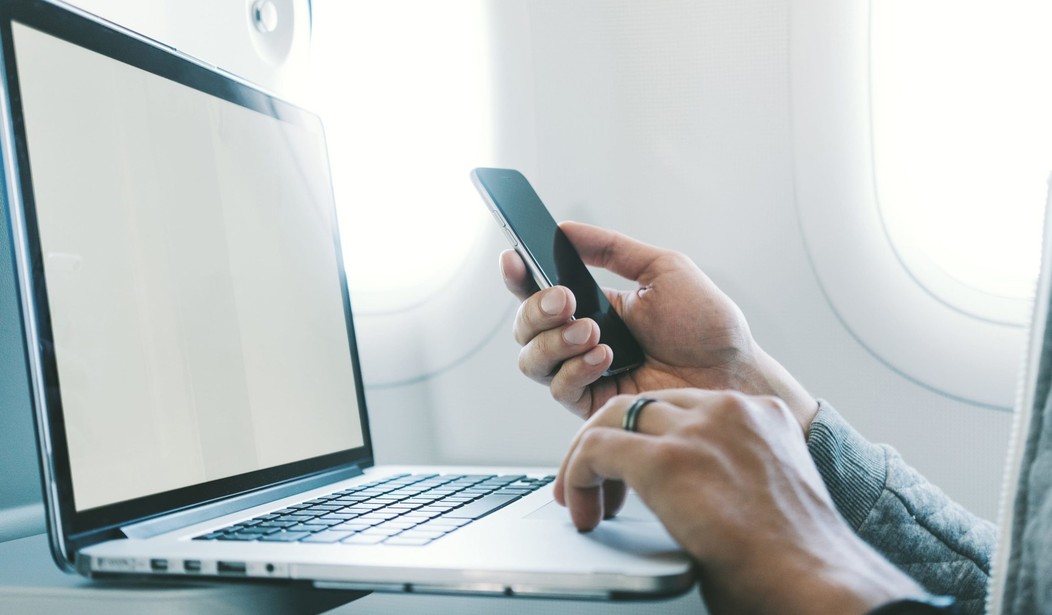In a proactive move to prevent possible terror attacks, the Trump administration announced a new travel ban Tuesday. Passengers on specific non-stop flights from African and Middle Eastern countries into the U.S. will be prohibited from carrying electronic devices larger than a cell phone.
The Department of Homeland Security made the announcement Tuesday, The Hill reported. The ban includes a wide array of electronic devices, such as laptops, tablets, cameras, portable DVD players, and electronic game units. These items will be permitted in checked baggage but cannot be carried onto non-stop flights from 10 different airports into the U.S.
Senior administration officials told reporters that the new security measures are being implemented in response to intelligence which indicates terrorist groups are “aggressively pursuing innovative methods” to smuggle explosive devices onto commercial flights. The government has been concerned about explosives hidden in electronic devices for some time. Al Qaeda in the Arabian Peninsula (AQAP) has reportedly been trying to build bombs with little to no metal, in order to avoid security screenings.
According to CNN, there wasn’t enough information to warrant any airline action before, but new information from a U.S. Special Forces raid in Yemen may have contributed to the concern.
The airports in question are located in Jordan, Turkey, Saudi Arabia, Kuwait, Egypt, Qatar, the United Arab Emirates (UAE), and Morocco. Many of these Muslim-majority countries have long been considered U.S. allies, but they are in an unstable region of the world. There is no overlap between these countries and those mentioned in the president’s executive order attacked as a “Muslim Ban.” While Qatar and the UAE are well-known business destinations, Homeland Security might be concerned about their position in the Arabian Peninsula.
Cell phones and medical devices are not included in the ban, and the policy does not apply to airline crew members.
In supporting this action, the administration cited several incidents where terrorists have targeted commercial aircraft in the past two years, including one incident in Somalia (a country covered in the immigration executive order), in which someone allegedly smuggled a device onto a Daallo Airlines flight last year. Daallo Airlines does not fly into the U.S., so falls outside the purview of this new ban.
The policy will impact nine airlines, each of which will have 96 hours to start enforcing the new security protocols. These airlines might have their certificate to fly into the U.S. revoked if they do not comply. No U.S. airlines are affected, since none of them have non-stop flights from the 10 airports in question.
The Hill reported that the U.S. government was already reaching out to airlines to inform them about the new policy before it went into effect. On Monday, Royal Jordanian posted (and deleted) on Twitter, explaining the new protocol to passengers and citing the “concerned U.S. departments.” This advance notice might help ease the rollout of the new policy, after the original immigration order infamously caused confusion and detainments at airports.
But tech experts told Britain’s The Guardian that concerns about laptops or other large devices being turned into bombs would not be allayed by restricting such devices to checked baggage. Worse, some smart phones have the same capabilities as larger devices.
“It’s weird, because it doesn’t match a conventional threat model,” Nicholas Weaver, a researcher at the International Computer Science Institute at the University of California, Berkeley, told The Guardian. “If you assume the attacker is interested in turning a laptop into a bomb, it would work just as well in the cargo hold.” And “if you’re worried about hacking, a cell phone is a computer.”
Bruce Schneier, a security technologist, called the new rules an “onerous travel restriction.” He argued that “from a technical perspective, nothing has changed between the last dozen years and today. That is, there are no new technological breakthroughs that make this threat any more serious today. And there is certainly nothing technological that would limit this newfound threat to a handful of Middle Eastern airlines.”
Another expert agreed that country-specific bans might not be the most effective policy. “One potential problem with this approach where you single out countries is that you ignore the extent to which the terrorist threat is kind of state-less,” argued Paul Schwartz, a professor at UC-Berkeley’s law school. He noted that the September 11 hijackers had a cell in Hamburg, Germany. “The terrorists have cells throughout the entire world.”
Interestingly, The Guardian also reported that U.S. airlines have lobbied the Trump administration to intervene in their competition with Persian Gulf air carriers. Three rapidly-expanding airlines, Etihad Airways, Qatar Airways, and Emirates, receive government subsidies with which Delta, American Airlines, and United say they cannot compete. These three Middle Eastern airlines, located in the Arabian Peninsula, are among those affected by the ban.









Join the conversation as a VIP Member